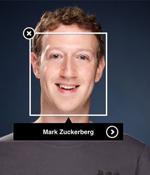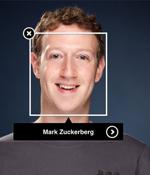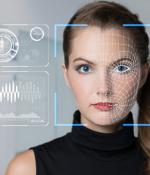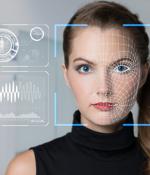Security News

Eurostar is testing a new biometric facial recognition technology on passengers traveling from London's St Pancras International station to continental Europe. The system will involve two facial scans, one at the ticket gate to verify the ticket check and one at the UK Exit Checkpoint, to confirm that the passport information is valid.
![S3 Ep61: Call scammers, cloud insecurity, and facial recognition creepiness [Podcast+Transcript]](/static/build/img/news/s3-ep61-call-scammers-cloud-insecurity-and-facial-recognition-creepiness-podcast-transcript-small.jpg)
Oh! No! The wannabe wizard that went to school with a trainee Sith. LISTEN NOW. Click-and-drag on the soundwaves below to skip to any point in the podcast.

Facebook's newly-rebranded parent company Meta on Tuesday announced plans to discontinue its decade-old "Face Recognition" system and delete a massive trove of more than a billion users' facial recognition templates as part of a wider initiative to limit the use of the technology across its products. The Menlo Park tech giant described the about-face as "One of the largest shifts in facial recognition usage in the technology's history."

Facebook's newly-rebranded parent company Meta on Tuesday announced plans to discontinue its decade-old "Face Recognition" system and delete a massive trove of more than a billion users' facial recognition templates as part of a wider initiative to limit the use of the technology across its products. The Menlo Park tech giant described the about-face as "One of the largest shifts in facial recognition usage in the technology's history."

Live video feeds of daycare centers are common, but the Army wants to take their kid-monitoring capabilities to the next level. Under a new pilot program being rolled out at a Fort Jackson, S.C. child-care center, the military is looking for service providers to layer commercially available facial recognition and artificial intelligence over existing closed-circuit television video feeds to improve childcare and cut costs.

The role of facial-recognition technology was put under the microscope earlier this week after the US House Committee on the Judiciary heard evidence about how it's used by law enforcement agencies. Dr Cedric Alexander, a former member of President Barack Obama's Task Force on 21st Century Policing, underlined the minefield facing lawmakers by laying out how, on the one hand, FRT can promote justice and "Even save lives" but not if it means sacrificing constitutional rights.

Civil rights campaigners in the US have called on retailers to stop using facial-recognition technology amid worrying privacy concerns and fears that it could lead to people being wrongly arrested. While Fight for the Future claims retail giants such as Walmart and Kroger have said they would not deploy facial recognition in stores, it claims others - including Macy's, Albertsons, and Lowe's - are still using the technology.

Moving forward, workplaces should leverage facial recognition solutions to thwart threats in the new hybrid workplace, bolster access control, and safeguard offices from future health risks. Facial recognition solutions can even pair with video management systems and send real-time alerts to security staff based on attribute-specific access control stipulations, such as time of day or location.

A GAO report finds government agencies are using the technology regularly in criminal investigations and to identify travelers, but need stricter management to protect people's privacy and avoid inaccurate identification. Though the federal government widely uses facial recognition for various uses from criminal investigations to collecting traveler data, this use is largely unmonitored and unmanaged - a scenario that must change to protect people's privacy and avoid inaccurate identification of perpetrators, a government watchdog report has found.

The EU's data protection agencies on Monday called for an outright ban on using artificial intelligence to identify people in public places, pointing to the "Extremely high" risks to privacy. In a non-binding opinion, the two bodies called for a "General ban" on the practice that would include "Recognition of faces, gait, fingerprints, DNA, voice, keystrokes and other biometric or behavioural signals, in any context".